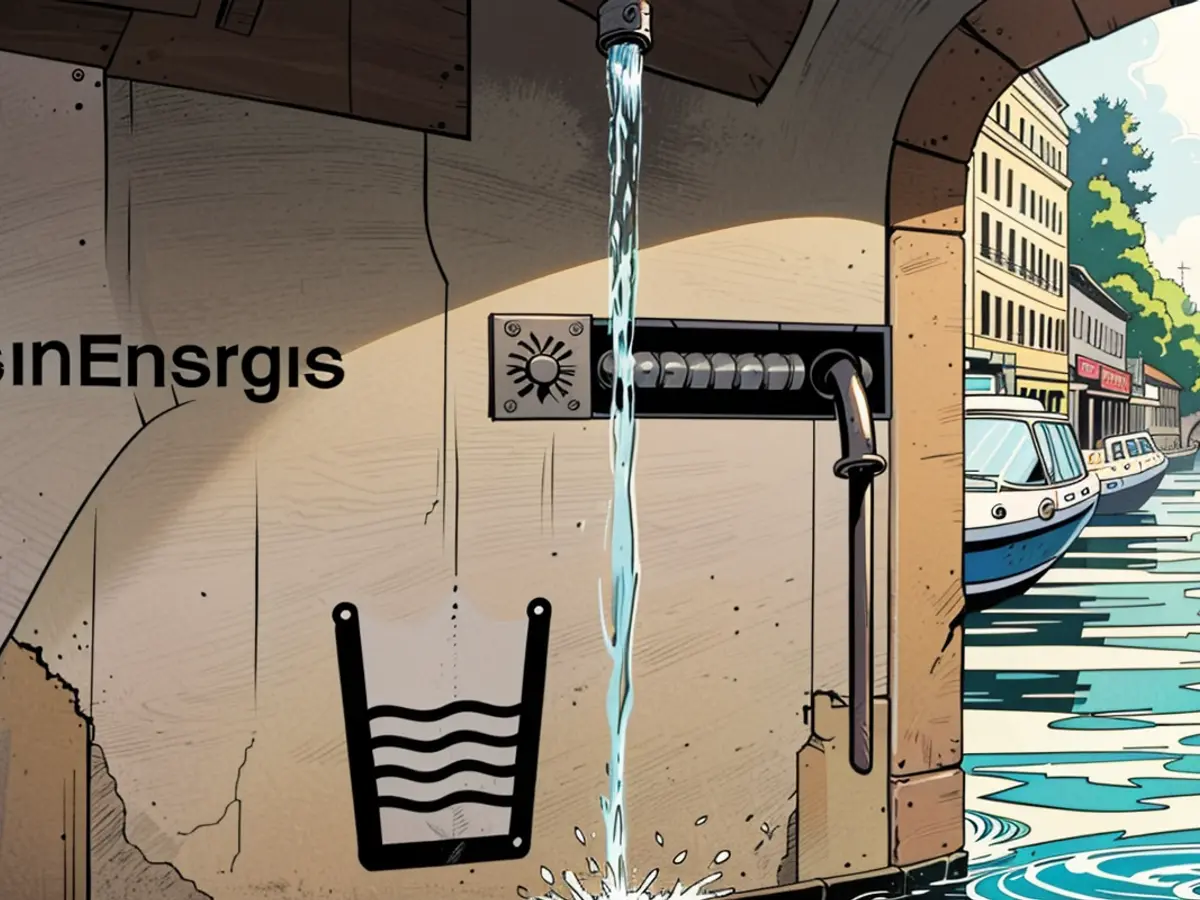Current Climate Conditions: - Additional water fountains and cooling spots in NRW urban areas
In response to the rising temperatures experienced during summer months, cities in North Rhine-Westphalia are upping their provision of public drinking water fountains. A survey conducted by the German Press Agency found that the number of fountains in major municipalities is on the rise. The director of the City Association North Rhine-Westphalia, Helmut Dedy, stated that the region has more drinking water fountains in its cities than any other comparative region.
Currently, Dortmund boasts 33 drinking water fountains, with two new ones installed recently and several more in the works. In Düsseldorf, there are already 20, while nearby Cologne has 13. Bonn currently has three, but is piloting three different fountain models at several locations. Bielefeld is planning an expansion with its trio of existing fountains, while Münster only has one fountain with a second soon to be installed. Bochum's city utilities operate nine stationary and four mobile fountains, with plans to add six more. Duisburg currently has two fixed and one mobile fountain, aiming to up its count to 50.
A single fountain costs around 15,000 euros to construct, while annual operating costs, containing expenses like cleaning and inspection, amount to roughly 13,000 euros, according to Essen's city estimates. According to Dedy, cities and their water suppliers have covered the costs of fountain construction and upkeep thus far. With the state's support for heat protection measures, they're also funding fountain installations through a special program for municipalities until 2027.
Digital maps are hailing locations of drinking water fountains in several cities, including Düsseldorf and Cologne. Münster and Düsseldorf are pinpointing other cool spots in their towns, such as green spaces, cemeteries, pools, playgrounds, and air-conditioned buildings like libraries and guesthouses, on special maps. Essen is in the midst of creating a similar map. Heat action plans, aiming to protect the population – particularly vulnerable groups – from heat-related ailments and fatalities, are being developed or considered in cities like Düsseldorf, Bochum, and Münster.
Rudolf Henke, the president of the North Rhine Medical Association, pointed out that Germany still lacks adequate resources for managing hot weather conditions compared to countries in Southern Europe. While heat protection plans are in place in some cities like Cologne, Dortmund, and Bielefeld, others are still working on them. To increase awareness about tackling heat, cities are sharing information online, offering phone hotlines, and handing out flyers. Dortmund published a heat helper guide, while Münster is focusing on training staff who work with delicate populations. Duisburg is establishing a coordination hub to keep tabs on heat stress concerns during the summer months.
Bochum has developed a heat concept specifically for the homeless, adding cool areas and providing sunscreen. Düsseldorf plans to bolster its number of misting fans with cooling water mists, which have already assisted at various sports events. Moreover, the city endeavors to introduce more green spaces. Cologne has been publicly associating itself with its recently-inaugurated water fountains.
In conclusion, Germany is upping its game in heat protection, with cities in North Rhine-Westphalia leading the charge by increasing the number of public drinking water fountains. The state is helping promote this via special funding, while some cities are providing digital maps and heat action plans for the population. Many cities are also raising awareness about coping with heat, offering more green spaces, and installing misting fans with cooling water mists. Bochum, for instance, has even made efforts to mitigate heat's effects on its homeless population.
Read also:
- Helmut Dedy, the director of the City Association North Rhine-Westphalia, commended the region for having more drinking water fountains in its cities than any other comparative region.
- In Bonn, three drinking water fountains are currently available, with the city piloting three different fountain models at several locations.
- Bochum's city utilities operate nine stationary and four mobile drinking water fountains, with plans to add six more.
- Essen's city estimates suggest that constructing a single fountain costs around 15,000 euros, while annual operating costs amount to roughly 13,000 euros.
- Düsseldorf and Cologne are using digital maps to pinpoint the locations of drinking water fountains and other cool spots in their towns.
- Rudolf Henke, the president of the North Rhine Medical Association, expressed concern about Germany's lack of adequate resources for managing hot weather conditions compared to countries in Southern Europe.
- Düsseldorf plans to bolster its number of misting fans with cooling water mists and increase its number of green spaces.
- With the state's support for heat protection measures, cities and their water suppliers are funding fountain installations through a special program for municipalities until 2027.








